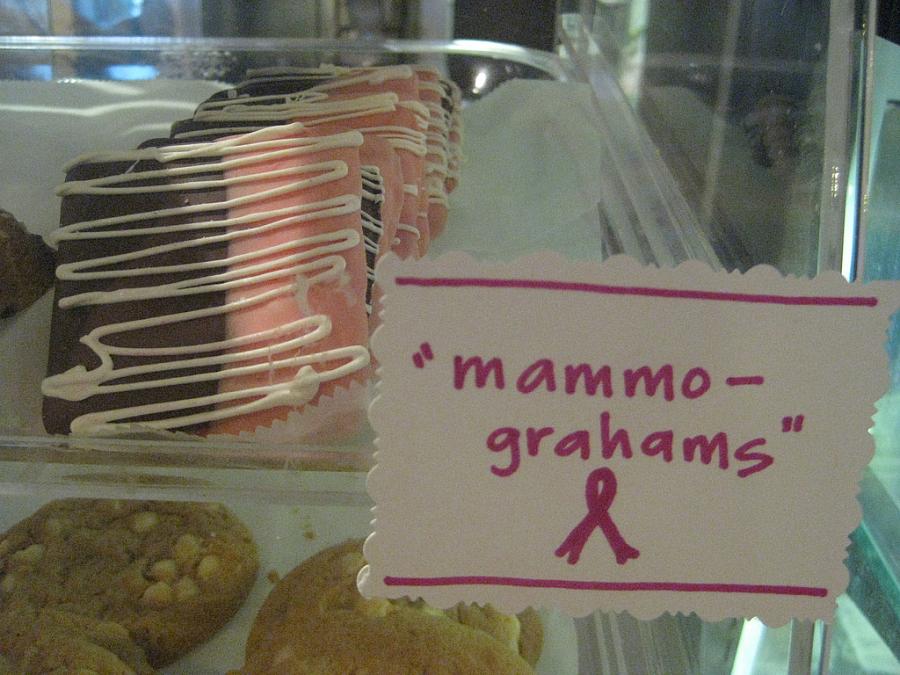Talking Cancer: More Tips from the International Workshop for Scientific Journalism

On Wednesday, I shared some tips from the recent International Workshop for Scientific Journalism, sponsored by the U.S. National Cancer Institute in Buenos Aires. Here are some more tips for covering cancer and other diseases.
1. Keep screening and testing separate. Over and over during the workshop, the distinction between screening and diagnostic testing came up. When people think of screening, they think about everything from getting a full body scan in a shopping mall to having a mysterious growth biopsied and tested.
But the two experiences are quite different, and it’s important to keep this in mind when writing about cancer and other diseases. When health officials talk about screening, they are talking about testing people who don’t have any symptoms to see if they have a disease. When we talk about diagnostic testing, that means checking people who have symptoms to confirm that they have a suspected disease. It’s the difference between a regular pap smear to check for signs of the virus that causes cervical cancer (screening) and doing a biopsy on a lump in someone’s breast and sending the tissue to a laboratory (diagnostic testing).
"If I do a PSA ([prostate-specific antigen) test on a man because he tells me he’s old, that’s screening," said Dr. Otis Brawley, the chief medical officer for the American Cancer Society. "If I do it because he tells me he is having trouble urinating, that’s diagnostic testing."
2. You can survive but not live longer. When measuring the success of a screening test, look for a lower death rate not a higher survival rate. "Increasing survival is not a legitimate measure of success," Brawley said. "Screening works when we find there’s a reduction of mortality."
So what does that mean? Take two men who have prostate cancer. One is screened with the PSA test at age 57 and diagnosed with prostate cancer. He dies at age 70. The other has prostate cancer but is not screened until age 67. He also dies at age 70. Both men died at the same age, but one "survived" prostate cancer 10 years longer than the other.
"Someone may be diagnosed earlier, but it doesn’t necessarily mean they die later," Brawley said. "You can increase survival and not decrease mortality." Brawley noted that studies have shown that when the bodies of men who die of accidents or heart attacks undergo autopsies that prostate cancer is found nearly a third of the time. "Patients can die with the tumor but not of the tumor."
3. Beware of revolutionaries in lab coats. Katherine Hobson (then at U.S. News & World Report, now freelance) saw the same press release that everyone else saw in March 2010, but she wrote a different story:
It's an eye-catching headline: " 'Revolutionary' Blood Test for Colon Cancer Screening Announced.'" The press release goes on to say that EDP Biotech Corp., based in Tennessee, will today brief its home state's legislators on what it calls a "breakthrough blood test" that "could save thousands of colon cancer deaths and billions in healthcare costs each year." …In theory, that's wonderful. Routine colon cancer screening is recommended starting at age 50 by the United States Preventive Services Task Force, the American Cancer Society, and other public-health groups.
Certain screening methods—including colonoscopy and sigmoidoscopy—can actually be considered a form of prevention, since they find polyps before they become cancerous. Yet, as the report from the February National Institutes of Health State-of-the-Science Conference on colorectal cancer screening said, "screening rates fall short of desirable levels," with about 55 percent of eligible people undergoing some type of screening.
More options, particularly inexpensive, noninvasive ones, would be welcome. But while the ColoMarker test may well have all the potential in the world, based on the information available so far, "it is unproven as a screening measure," writes Durado Brooks, director of prostate and colorectal cancer at the American Cancer Society, by E-mail. He reviewed materials provided by the company.
Ivan Oransky, the executive editor of Reuters Health, heralded Hobson’s story during the workshop, and he also had one of the best lines of the two days: "Whenever I see 'revolutionary' anywhere except having to do with wars of independence, I tend to be very skeptical. … Fact checking is very popular in political season, but it should be popular in all seasons."
Related Posts:
Talking Cancer: Tips from the International Workshop for Scientific Journalism
Are Dense-Breast, Right-to-Know Laws Helpful?
What Doctors Don't Know & Journalists Don't Convey About Screening May Harm Patients
Slap: UC Davis Still Reeling from Attack on Doctor Who Questioned PSA Tests
False positives show need to adjust expectations for cancer screening tests
Photo credit: Sylvar via Flickr

